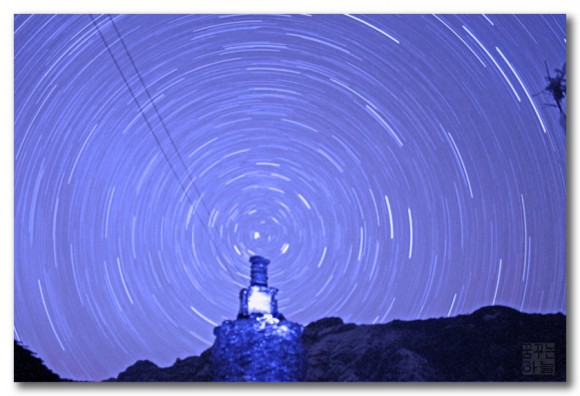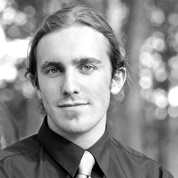Chaotic connections: Learning to enter the anxiety of life in a hyper-aware age

Credit: Dhilung Kirat, https://www.flickr.com/photos/dhilung/3311130707/
A few months ago, I decided to stop watching the reboot of Cosmos (for those who haven’t checked it, the series is an update on Carl Sagan’s legendary ‘80s space show, except with far fancier graphics and the ever-amiable Neil DeGrasse Tyson at the helm). It wasn’t because of boredom, or lack of time. Rather – like how I felt when I read Bill Bryson’s A Short History of Nearly Everything – I became overwhelmed with the simultaneous feeling of dread and wonder. More so the former.
Staring at the stars for too long can mess most people up. We’re totally insignificant. But sometimes, I can craftily prevent that emotion from sinking in all the way. In fact, I’d managed to block it out for a good while. But while in Calgary for Thanksgiving, I picked up a short, albeit dense, book titled The Ecological Nature by Timothy Morton, a University of California scholar. I wouldn’t dub it an enjoyable read. Once again, not because of the quality, but because of the utterly distressing thesis.
“… it might be harder to imagine four and a half billion years than abstract eternity,” he writes a few dozen pages in. Human evolution – which is what he’s referring to with the massive number – has happened by chance. All has occurred via random mutations, a point Morton emphasizes frequently. A few pages earlier, he suggests that some writers are pushing the wrong message when they suggest that species evolve in a harmonious way; “Natural selection isn’t about decorum or an organic ‘fit.’,” he suggests. Pierre Teilhard de Chardin absolutely missed the point with his idea of the Omega Point. Darwin was anti-teleological.
But the problem is that Teilhard de Chardin is basically the figurehead of Christianity’s intersection with evolutionary theory. It’s been a long time since I’ve self-described as a Christian – usually, I bounce between pantheism and atheism, depending on the day – but the subtle slam by Morton (specifically, that evolutionary theory offers “no progress … and no climax”) is a bit of a deathblow to any possible feelings of purpose. It’s a complete misnomer to suggest that there’s any direction to any of the last few billion years. We’re cosmic accidents. There’s no real dispute.
Common Ground
This all might seem elementary. But I’d contend, like Morton does, that it’s only in the dissolving of “our sense of a deep, rich, coherent world” that we can discover common ground. Not just with other human-looking beings. But with the elms, the jackrabbits, the bananas (which, it’s always fun to point out, we share 50 percent of our DNA with). The paradoxical middle ground between awe and despair. Think of listening to Miles Davis, or Charles Mingus, or Colin Stetson. There’s something both wondrous and upsetting about the exercise.
It’s the same feeling I encountered when I began to explore the writings of Paul Kingsnorth, who I interviewed for Geez 35, “After Failure”. Kingsnorth – an English essayist who manages to wrestle William Wordsworth, Ivan Illich and D.H. Lawrence into the same, flowing argument – has served a mighty important role as of late, in the same vein as Morton. The old Marxist arguments about the bourgeois and proletariat are obsolete, he contends. We’re all highly complicit in oppression (even, in the most ironic cases, those exploited). Privileged citizens are climate change. We must embrace the darkness.
It’s an unsolvable incongruity. Yes, there are many factors at work, namely a gargantuan propaganda machine to manufacture consent (and spiritual dissent). But the mistake that the Frankfurt School are constantly critiqued for is their relegation of citizen as automaton. Morton touches upon similar turf as Kingsnorth: at one point, he eloquently suggests that “even now, on the brink – over the brink, indeed – of climate catastrophe, we’re only just capable of glimpsing its magnitude and profundity.” The technologies that have allowed us to measure carbon dioxide emissions are the same that are destroying us.
On that note, it’s only due to our culture’s intense addiction to petroleum for the past few centuries that have ever allowed for the aforementioned weirdo jazz records to be recorded and distributed. Yet another paradox. One of the few things that clears my head, asides from reading and a cold brew, is music. I – like Calgary journalist Chris Turner, who noted in his brilliant 2009 essay “The Age of Breathing Underwater” how his profound affection for protecting coral reefs only came through the use of fossil fuel-facilitated scuba gear – have encountered deep spiritual connection through ecologically devastating technologies.
Connection
All of this may seem unrelated to evolution. It may very well be. But here’s where I can try to connect the mental dots: it’s only when we embrace the utter incongruity of our existence – that is, the fact that we’re the byproducts of billions of years of chance alterations, that we’re the causes of the environmental destruction that we protest, that the things that make us feel closest to paradise are the same causes of the loss of said paradises – that we can encounter a sense of congruity. The likes of Bill McKibben and Yes! magazine may try to offer easy answers. But there’s little willingness to interact with the complexity.
It’s been the quest of many a philosopher to promote such engagement. The book of Ecclesiastes nailed it. Or think of Albert Camus and his contention that we must forcefully participate in the world even though there may very well be no point. There’s a reason that Turner consistently calls climate change an “existential challenge.” David Foster Wallace returned again and again to the idea that, as he wrote in The Pale King: “everything we see around us all the time is decaying and passing.” Try listening to “Benji” by Sun Kil Moon. It’ll all come crashing down. But there’s something also valuable about the experience.
But finally, there’s the Tibetan Buddhists, who Morton notes practice nonviolence and benevolence despite their full understanding of the intense magnificence of the galaxies. It’s with such dislocation that we become completely humble and willing to participate in a larger community. Could Dunbar’s number – the suggestion by Robin Dunbar that humans can only relate to around 150 other people – be expanded with a better understanding of our place in the cosmos? I’m going to guess affirmative, mainly because I don’t have any other ideas. Let’s fall into chaos. Maybe then, we can finally connect.
 James Wilt is an Associate Editor at Geez. He lives in Winnipeg, Manitoba.
James Wilt is an Associate Editor at Geez. He lives in Winnipeg, Manitoba.
1 Comment
Sorry, comments are closed.


So eloquently put, James. I’m glad to read more of your writing even now halfway across the world. I love the idea that our commonality lies in embracing chaos, but at the same time, on a dimmer day in a darker mood, this train of thought runs nihilistic. Would love to talk further – email please! (=
Andrea December 10th, 2014 7:39am